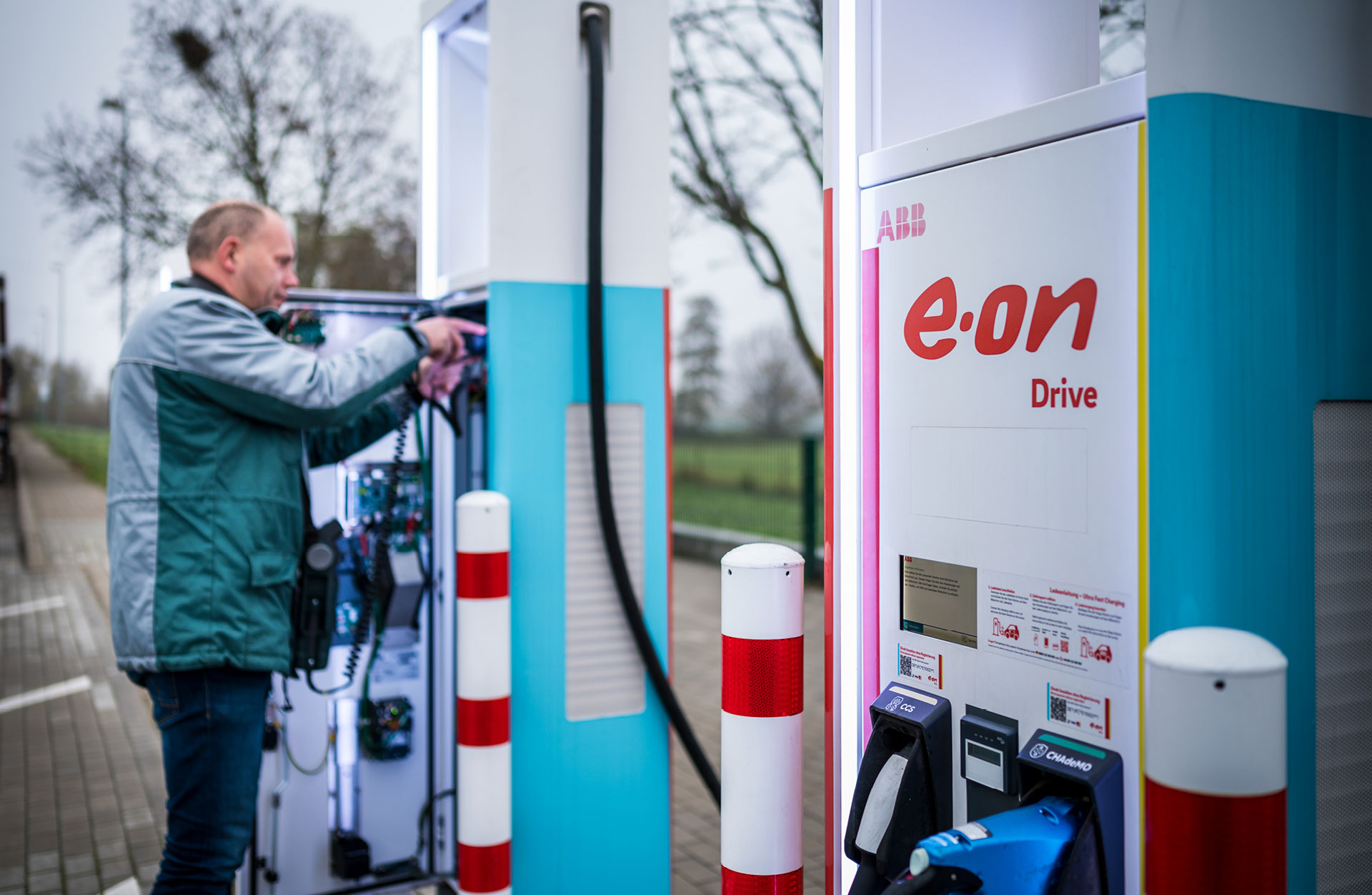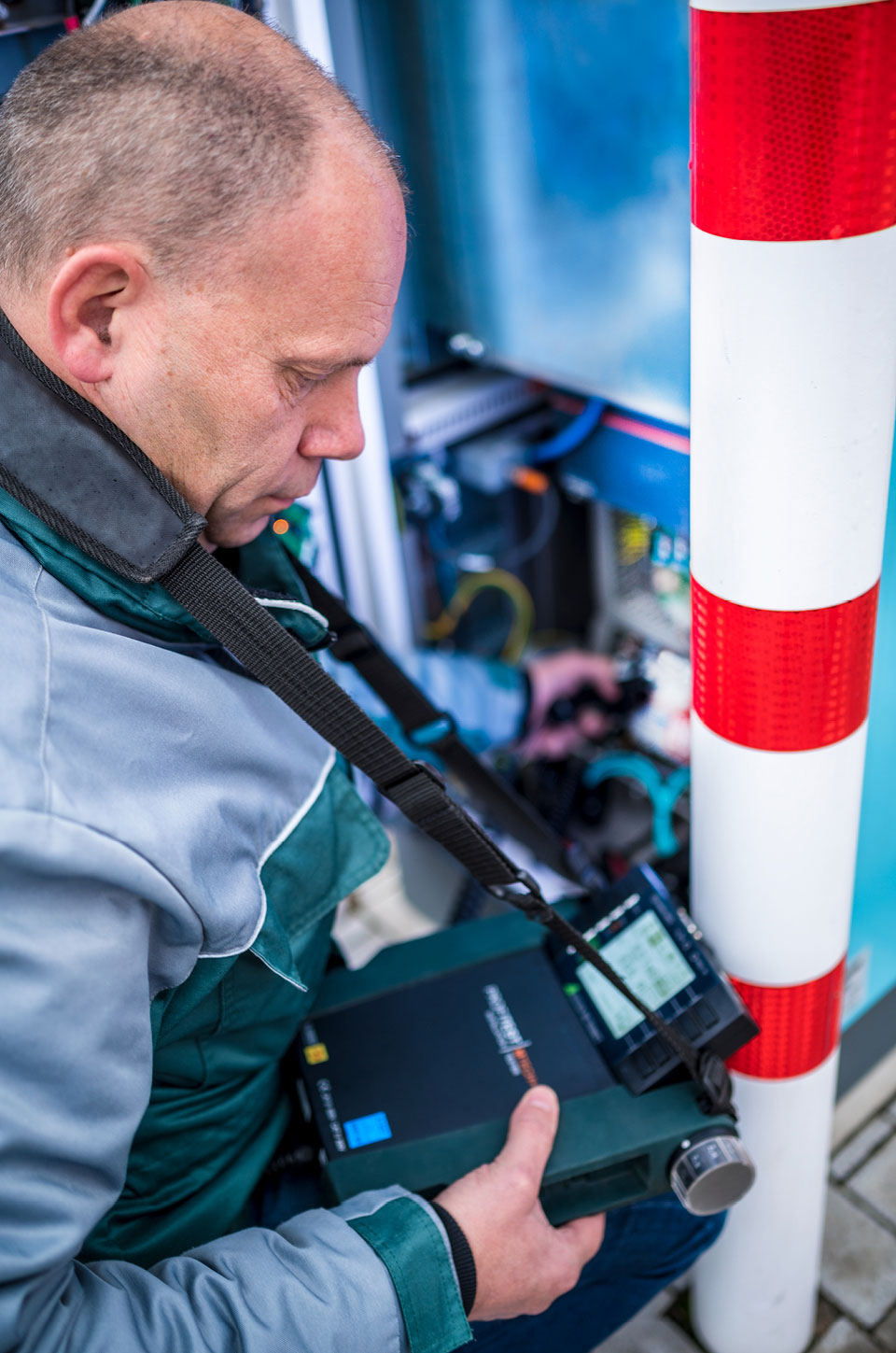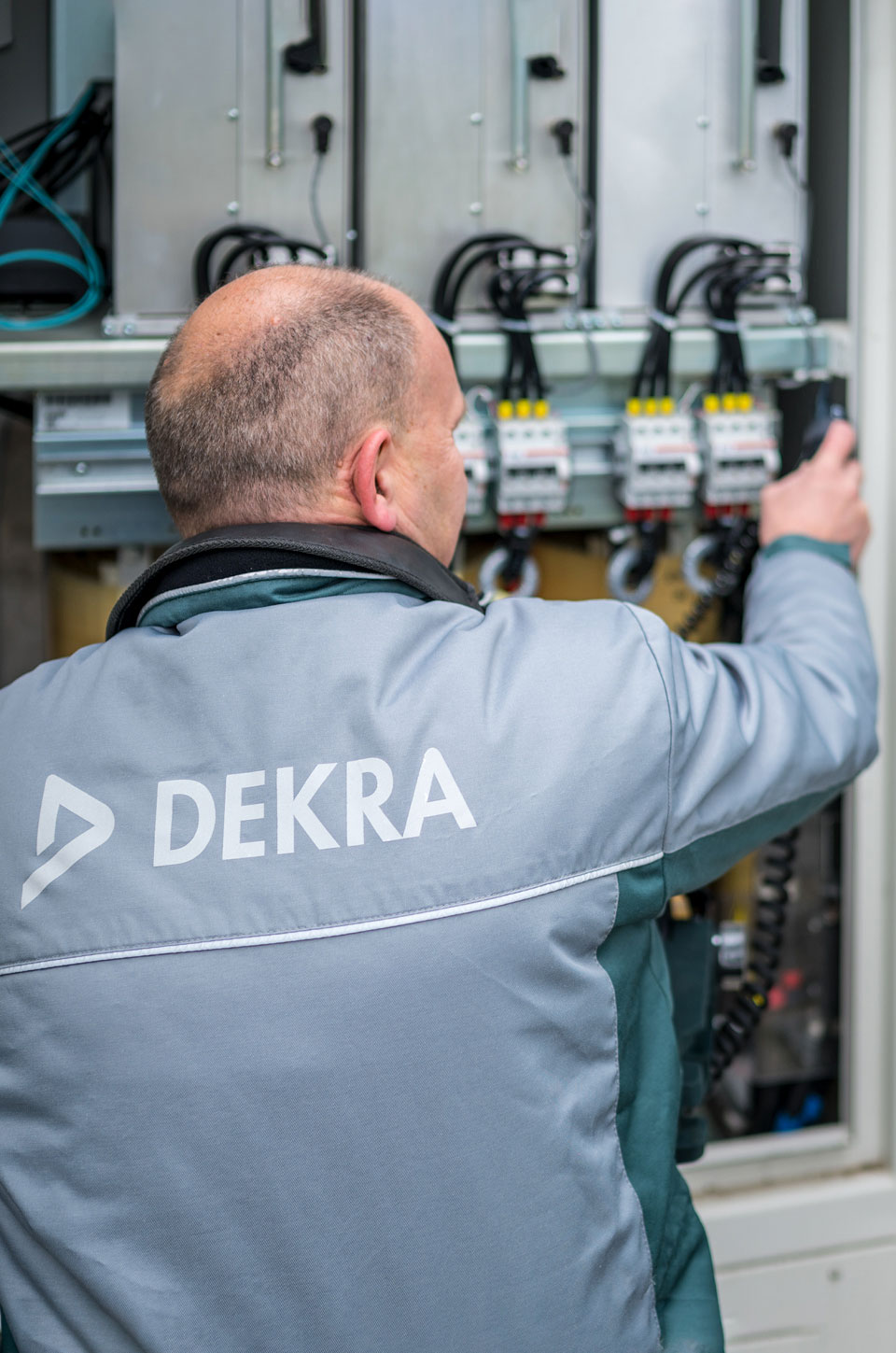Ultrafast charging points
Demand for EVs is booming
Demand for electric cars in Germany is booming. This is also reflected in the current figures for newly registered electric vehicles (plug-in hybrids and fully electric cars): According to the Kraftfahrt-Bundesamt – the Federal Motor Transport Authority in Germany – around a quarter of new passenger car registrations in the first half of 2022 will be accounted for by cars with an electric drive system - in absolute figures, that is around 306,000 vehicles. The need for mobile power is growing accordingly. As of May 2022, there are around 60,000 publicly accessible charging points in Germany (source: Federal Network Agency). On average, there are therefore currently around 22 EVs per publicly accessible charging point. Business is booming; energy firms, but also carmakers and mineral oil companies are investing heavily in the still new market.
One of the biggest players on the field is the Essen-based energy supplier E.ON: E.ON owns around 4,520 charging points in Germany. Thanks to roaming agreements, E.ON customers can now “fill up” with electricity using an app at almost 160,000 charging points in Europe, and around 60,000 charging points in Germany alone.
Fast charging points on the freeways
At around 130 ultrafast charging stations, which E.ON itself operates in Germany, vehicles can be charged with up to 350 kW. Most of the stations are located at rest stops along freeways. Just half an hour is enough to charge the battery of an average electric car to around 80 percent.
With that much power flowing from the charging plug, everything that goes with it has to be safe. After all, we are talking about up to 20,000 volts of electrical potential and up to 2,500 amps of current. For this reason, the freeway company on whose land the E.ON quick-charging points stand insists on having an additional, independent expert on-site so that all components can be inspected again after installation. E.ON has commissioned DEKRA with this task.
Safety check of an ultrafast charging station
From certification and acceptance testing to annual testing at the point of use - DEKRA experts are involved at several points in the value chain of a charging pole. Michael Ringleb, 54, has been at DEKRA for 14 years. In his role as master electrician with additional qualifications as a publicly appointed expert, he is the right man for the job. His location for today's safety check: the fast-charging station at the Dannstadt-Ost rest stop (A61). He is highly familiar with electrical installations – and has plenty of practical experience. “I have already seen many installation errors in my career. These include forgotten or wrongly connected cables, insufficient cable cross sections or insulation measures, and forgotten electric shock protection,” he explains, while he inspects the wiring and the solid copper bus bars, which have been fitted in the transformer station not far from the actual charging point. This is where the 20,000 volts of medium voltage arrive before being reduced and fed into the so-called low-voltage grid that distributes 400 volts of alternating current. Michael Ringleb checks everything, including cable cross sections, connections, safety devices, and documentation. He goes through test logs and remeasures the most important points himself once again. “Mistakes do happen. But a current of just 500 milliamperes flowing through the body can be fatal; a domestic installation has around 16 amperes. Here we are dealing with hundreds of times that figure.” Among other things, so-called electric arcs are possible, which can cause fatal burns, short circuits, and fires even from a distance.
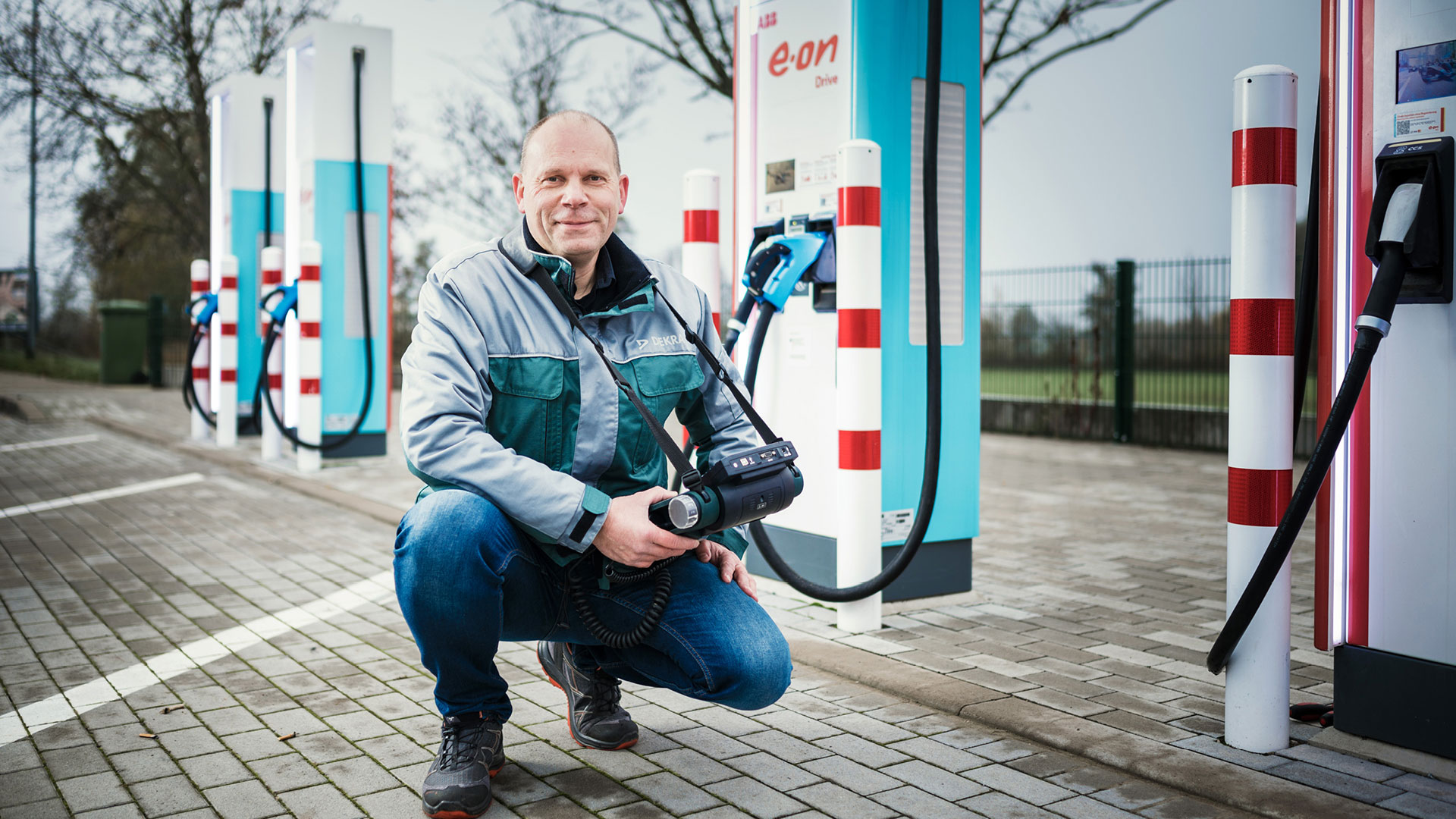
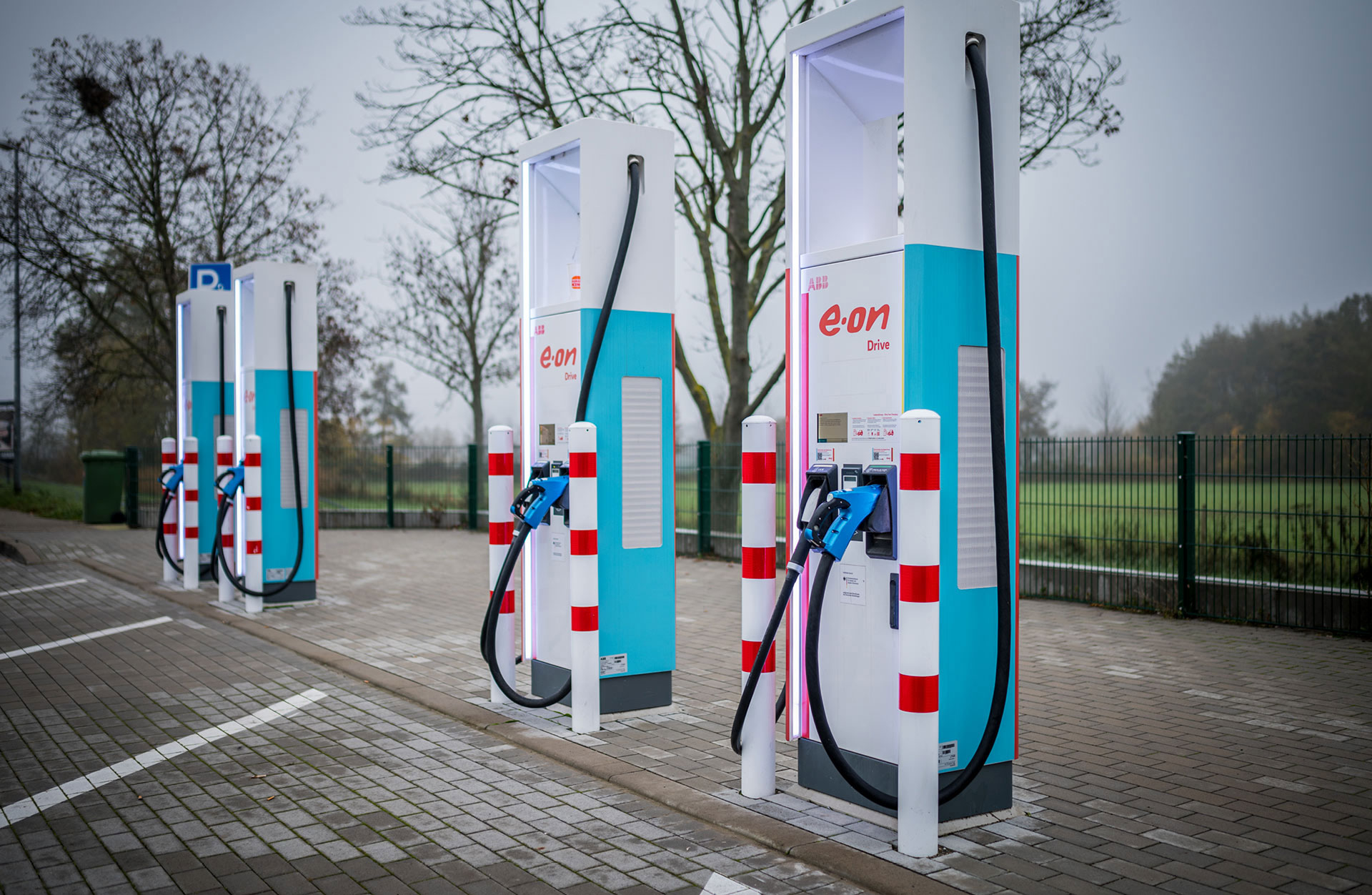
DEKRA expertise in demand for charging stations
Ringleb moves onto another row of cabinets to continue his checks. This is where 400 volts of AC voltage are transformed into up to 900 volts of DC voltage, which is then in contact with each charging point – where Ringleb once again takes measurements and inspects everything carefully. Safety always comes first when checking electrical components. With the testing and acceptance of the ultrafast charging stations, Ringleb's field assignment at the Dannstadt-Ost service station has ended successfully for today – his next assignment is already planned. After all, DEKRA's experts in the field of charging infrastructure for electromobility are in demand. And that is why Michael Ringleb is happy to pass on his wealth of knowledge and experience: As part of his teaching assignment, the electrical expert has already prepared 60 colleagues for the testing and monitoring tasks in the charging parks – with upward tendency.
